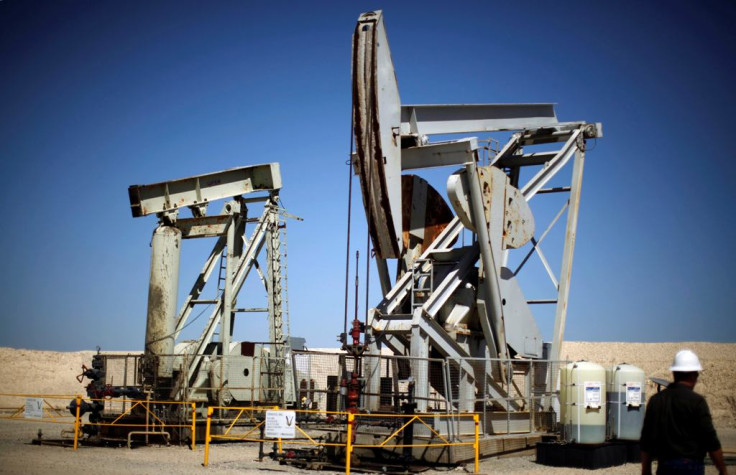Goldman Sachs predicts US crude prices will drop to $40 a barrel

Crude oil prices will reverse their recent gains as global inventories begin to rise, with US crude likely to drop to $40 a barrel in the near-term, according to Goldman Sachs.
Goldman added that Brent prices would also come under renewed pressure.
The firm believes that "the activity pull is sequentially weakening" and that global crude inventories will therefore rise, driving West Texas Intermediate (WTI) crude to $40 a barrel, levels last seen at the peak of the global financial crisis in late 2008 and early 2009.
US crude was trading 0.22% lower to $49.50 a barrel at 6.13am GMT.
Brent crude was trading 0.57% lower to $59.39 a barrel.
Goldman said in an 8 March note that "the build in US inventories has surprised to the upside, especially in Cushing".
The statement reads: "While we continue to forecast a strong demand recovery in 2015, we believe that sequentially weaker activity, the end of winter and the end of potential restocking demand, will lead to a sequential deceleration in demand-growth as we enter the spring.
"As a result and absent further unexpected Opec disruptions, we expect Brent oil prices and timespreads to reverse their recent strength, although the lack of a meaningful build in the past few months leaves risk to our forecast for (WTI) oil prices remaining at $40/barrel for two quarters skewed to the upside.
Asian demand
The Wall Street major added that it expected "OECD Asia demand to decline in 2015 as stronger industrial production is offset by the continued switch to LNG (liquefied natural gas) for power generation and the impending start-up of the two Sendai nuclear reactors in Japan". This is a two-thirds drop in Asian LNG prices is making the fuel cost competitive against oil in the industrial power sector.
Meanwhile, in Japan, regulators have approved for several reactors to be restarted this year after all 48 reactors were shutdown following the Fukushima Daiichi nuclear disaster in 2011.
Oil prices rose by almost a third between January and February on Middle East supply disruptions, strong winter demand and high refinery margins, Reuters reported.
That followed a rout that saw prices plunge around 60% between June 2014 and January this year.
© Copyright IBTimes 2025. All rights reserved.






















